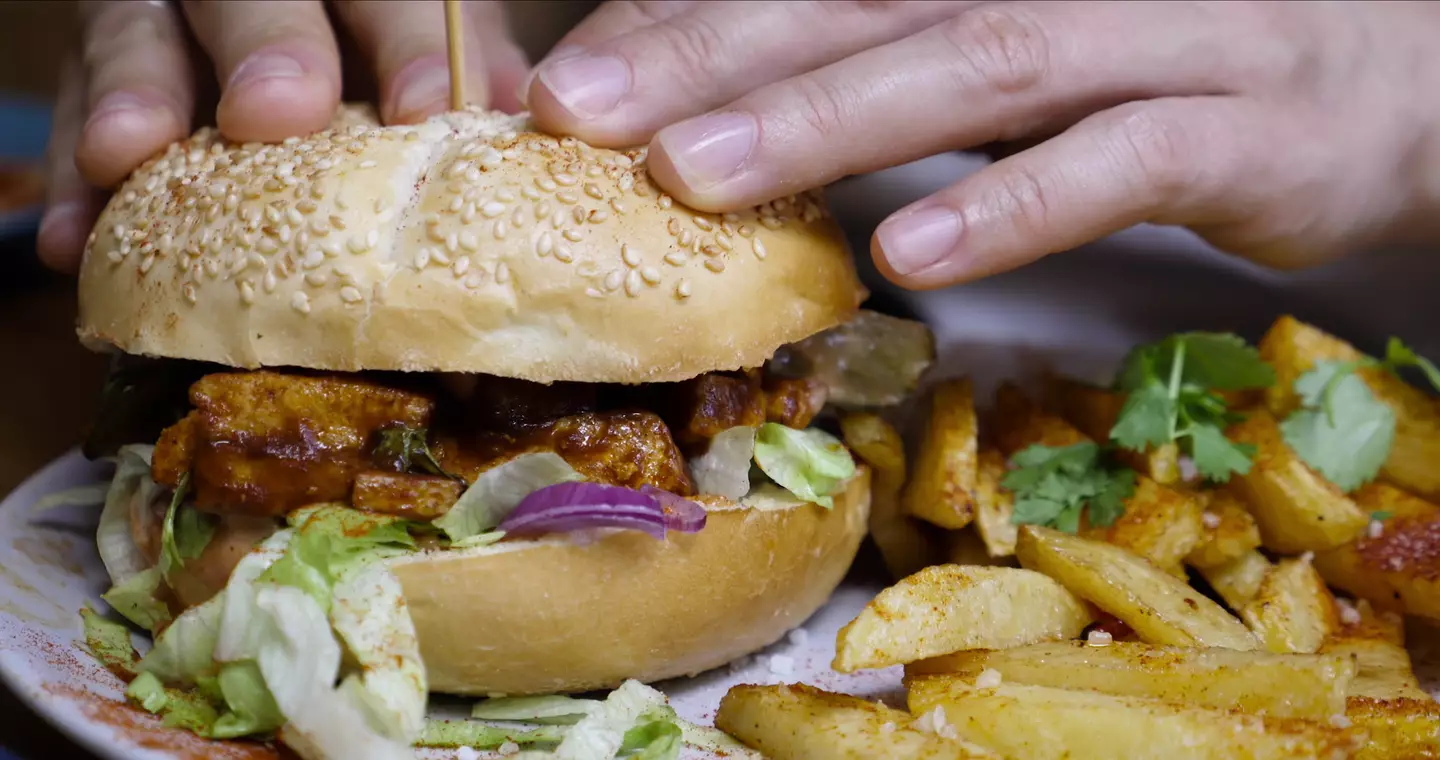
We may never know the extent to which nature or nurture is more important in how we turn out, but at least on the nature side we have a decent control when it comes to diet experiments: identical twins.
Not counting for how their bodies have been affected by their environments and differences in lifestyle choices, identical twins are genetically identical and should, in theory, respond to diets in a similar way.
While there’s no end of diets being touted as the panacea to all of our problems, the central debate remains around whether it’s better to eat meat or abstain entirely with a vegan diet.
It’s a hot topic with plenty of passion, so it’s no wonder that diet experiments taken on by identical twins pick up a lot of traction online.
Advert
One Stanford University experiment in particular has got jaws flapping and keyboards tapping across the internet.
In a report published in November 2023, Stanford University investigated whether a vegan diet is beneficial for cardiovascular health, and goes on to explain the main benefits of both omnivorous and vegan diets.

The experiment focused on 22 pairs of identical twins so as to eliminate genetic differences and minimise the differences in upbringing and lifestyle choices.
This is of course not a perfect test, as minor differences can snowball over time to create big ones, and even genetically identical twins will develop their own unique mutations over time.
Nevertheless, identical twins raised in the same home and living similar lifestyles are as close as we’ll get to one-to-one copies of the same person, making for strong comparative studies on things like diet.
“The trial, conducted from May to July 2022, consisted of 22 pairs of identical twins for a total of 44 participants,” the report said.
This particular study was included in Netflix’s You Are What You Eat: A Twin Experiment, a documentary released in 2023.

Participants were given 21 meals produced by a catering company, with one member of each twin pair eating a vegan diet while the other maintained an omnivorous one.
Then, for the last four weeks of the experiment, the participants prepared their own meals based on these diets.
One pair of twins, Jevon and John Whittington, who were 22 at the time, spoke to the New York Post to explain a key difference they’d noticed between them after two months of following the diets.
Both twins were in great shape, with low body fat percentages, above-average muscle mass, and strong cardiovascular fitness.
John was the vegan guinea pig in this experiment, and he found that he lost a considerable amount of visceral fat whilst following the plant-based diet.
Visceral fat is fat that surrounds major organs, and too much of it can be problematic for long-term health.
At the start of the experiment, John’s body fat stood at 11.1%, with 0.37 pounds of visceral fat.

Jevon, who followed the omnivorous diet, had a near-identical amount of body fat at 11%, although he started with less visceral fat at 0.22 pounds.
During the study — and based on their physiques, they’ve been doing it for a long time before the study — the twins worked out a few times a week across cardio, weight training, and interval training sessions.
By the end of the study, vegan-based John had lost 0.19 pounds of visceral fat, leaving him with a staggeringly low 0.03 pounds of the stuff.
Jevon, meanwhile, dropped from 0.22 pounds of visceral fat to 0.21.
John’s insulin levels also dropped by 20%, and he also experienced a 12% drop in cholesterol.
For Jevon, these metrics barely changed at all while he continued eating meat.
That said, eating meat proved a solid foundation for Jevon to put on some muscle, as he gained a whipping 7.1 pounds of lean mass by the end of the eight-week experiment. John, meanwhile, only gained 2.3 pounds.
Once the study was over, meat-eater Jevon said they had both 'cut back on meat and dairy', but noted that 'it proved to us that we can continue to eat the way we’re eating'.
It would be silly to draw broad conclusions from just two twins’ experience, but it’s nevertheless interesting to note that the vegan diet was a solid platform for shedding some body fat.
Topics: US Food, Fast Food, Vegan, Diet, TV and Film
